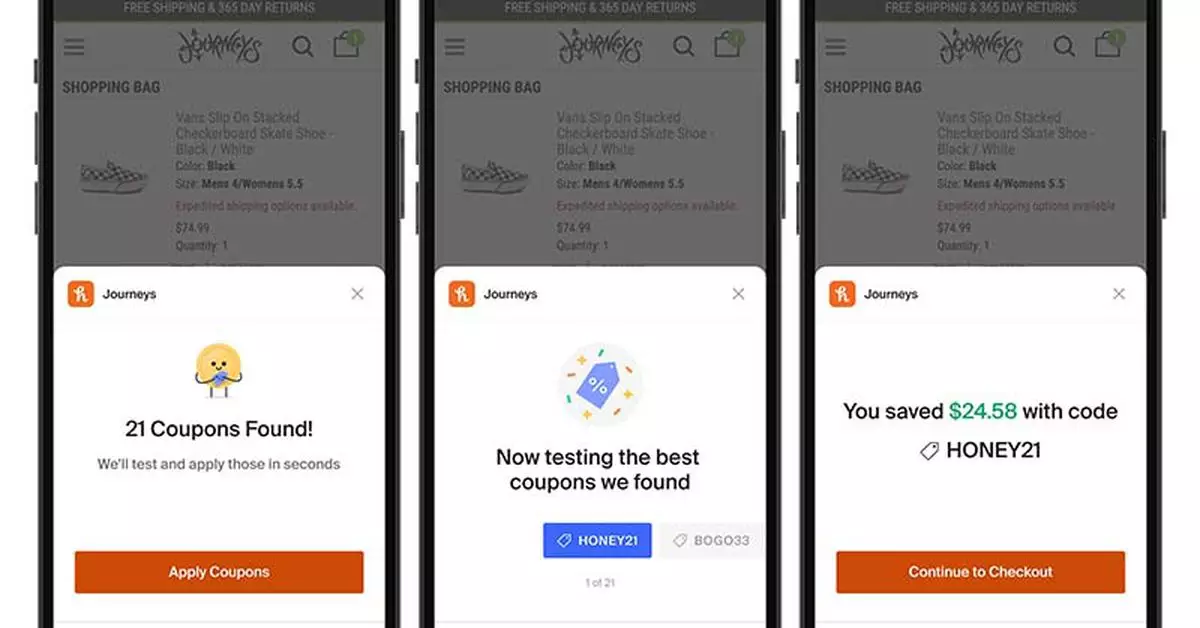PayPal Honey has positioned itself as a tool for online shoppers, promising to unearth the best possible discounts during the checkout process. The browser extension, often heralded as a digital savior for budget-conscious consumers, maintains that it scans for coupon codes to save users money with minimal effort. However, recent claims made by prominent figures such as YouTuber MegaLag have put the credibility of PayPal Honey into question, leading to heated discussions regarding its operational practices.
Claims of Deceptive Practices
In a video that has gained traction within the tech community, MegaLag described PayPal Honey as a “scam,” suggesting that the extension is systematically bypassing better deals and engaging in practices that harm influencers. His assertions raise serious concerns about the integrity of the extension and the ethical dimensions surrounding its partnerships with online retailers. According to MegaLag, PayPal Honey frequently fails to deliver upon its promise of finding the most advantageous promo codes, instead presenting users with a Honey-branded option that is often less beneficial than what users could easily discover through a simple search.
The essence of these allegations indicates a potential conflict of interest as Honey appears to prioritize its retail agreements over user satisfaction. This not only undermines the extension’s advertised utility but suggests a level of intentional misrepresentation that could sway consumers into believing they are obtaining the best deals available.
Impact on Influencers and Affiliate Marketing
One of the most damaging claims made by MegaLag pertains to how PayPal Honey allegedly hijacks affiliate revenues intended for content creators. When users click on affiliate links shared by influencers, Honey supposedly replaces these links with its own tracking mechanism during the checkout process. This practice leads to Honey capturing credit for sales that influencers originally directed, thereby denying them deserved recognition and potential revenue.
This scenario presents a significant ethical dilemma within the landscape of affiliate marketing. Influencers often rely on partnerships for income, and losing credit for sales may discourage them from promoting brands, consequently impacting the overall dynamics of digital advertising. The ramifications are profound; not only does it harm individual creators, but it also erodes trust in affiliate marketing as a transparent business model.
In response to these allegations, PayPal has defended Honey’s operational strategies. Josh Criscoe, Vice President of Corporate Communications at PayPal, asserted that Honey adheres to standard industry practices, including the concept of last-click attribution. While these standards are widely accepted, the philosophical underpinnings of these practices come into question, particularly when consumers and influencers are feeling the adverse effects.
Though Criscoe’s defense attempts to lend credibility to PayPal Honey’s practices, the consistent outcry from the user community and influencers merits a deeper examination of the ethical implications behind last-click attribution and its practical consequences.
The community response to MegaLag’s video has been vocal and critical, generating discussions about the ethics of using automated tools to secure discounts. Some previous advocates for PayPal Honey are now reconsidering their endorsement, with The Verge publicly retracting their recommendations as a result of the findings presented.
While the extension has garnered significant popularity—boasting around 5,000 sponsored videos across roughly 1,000 YouTube channels—its reputation is now at risk. Consumers often seek transparency and fairness, and if a brand like PayPal Honey cannot deliver these values, it faces the possibility of losing credibility and user trust.
The mounting scrutiny surrounding PayPal Honey serves as a crucial reminder of the need for transparency in the rapidly evolving digital landscape. As e-commerce continues to thrive, consumers and influencers alike will increasingly expect integrity from the tools they utilize. The allegations made against PayPal Honey should prompt a broader discussion about ethical practices and accountability in affiliate marketing and digital advertising. For now, users may want to approach PayPal Honey with caution while weighing the potential benefits against the allegations of malfeasance.

